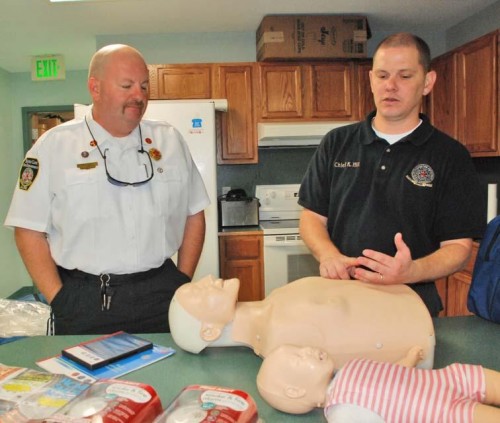
Officials not laughing at Spencer’s gifts
October 5, 2010
Bayou Cane uses grant money for fire safety
October 7, 2010An economic report on CNN last week pointed out that the 25 richest Americans made one billion dollars each in income during the past year. We use the term “billion” so frequently that sometimes we forgot what it means. A billion is 1,000 millions.
Contrast that with the average annual income of someone living in Haiti, who makes $400, a little more than $1 a day.
Jesus told a story about a rich man and a poor man. All of us can name some rich people – Gates, Buffett, Rockefeller family, etc. – but how many homeless people can we name? When Jesus told the story of the rich man and the poor man, he turned things around. He does not give the rich man a name but names the poor man, Lazarus.
The rich man dresses in expensive garments, dines sumptuously every day, and lives in a luxurious home. Lazarus, by contrast, is poor. He is homeless and sits at the door of the rich man home, poorly clad and hungry. He would be satisfied with the crumbs that fell from the rich man’s table. This story suggests that in Jesus’ day a contrast existed between rich and poor, similar to what we experience in our world today.
Lazarus dies and goes to the bosom of Abraham enjoying the happiness of heaven. The rich man dies and goes to the netherworld, or hell, where he is in tormenting flames. The rich man’s begs Abraham to send Lazarus with cool water to refresh him in his torment.
Notice that even in his suffering, he still treats Lazarus as a servant, a nobody. “Go get me some water.” Abraham says to him, “You lived in comfort on earth and Lazarus lived in misery. Now he is living in comfort and you in misery” – a reversal of fortunes.
God is not punishing the rich man because he was rich. Neither is he being punished because he physically abused Lazarus. He failed to see Lazarus as a person in need.
How do we apply this message to our lives? First, in comparison to so many who are poor in our country and around the world, we are rich with blessings and we should constantly thank God for these gifts.
Secondly, we must not allow ourselves to be like the rich man who didn’t even notice Lazarus and close our eyes to the poor. We have all experienced financial difficulties because of hurricanes, job losses, the oil spill, or other tragedies. We know what it means to struggle with limited resources. We can imagine what the poor face who struggle with no resources at all.
Third, we should make sure that we share a significant portion of our blessings with those who have so little. We can do that by supporting our favorite charities.
Finally, we need to take some concrete steps to promote justice in our society so that we can close the chasm between the very rich and the very poor. In the last 30 years, we have seen this gap grow even wider. We can reverse this trend by supporting legislation to continue the tax relief for the middle and lower classes but not the wealthy. We also need to oppose laws that will hurt the poor or discriminate against ethnic or religious minorities.
St. Vincent de Paul said in a letter, “Since Christ willed to be born poor, he chose for himself disciples who were poor. He made himself the servant of the poor and shared their poverty. Jesus went as far as to say that he would consider every deed that either helps or harms the poor as done for or against himself. Since God surely loves the poor, he also loves those who love the poor.”






